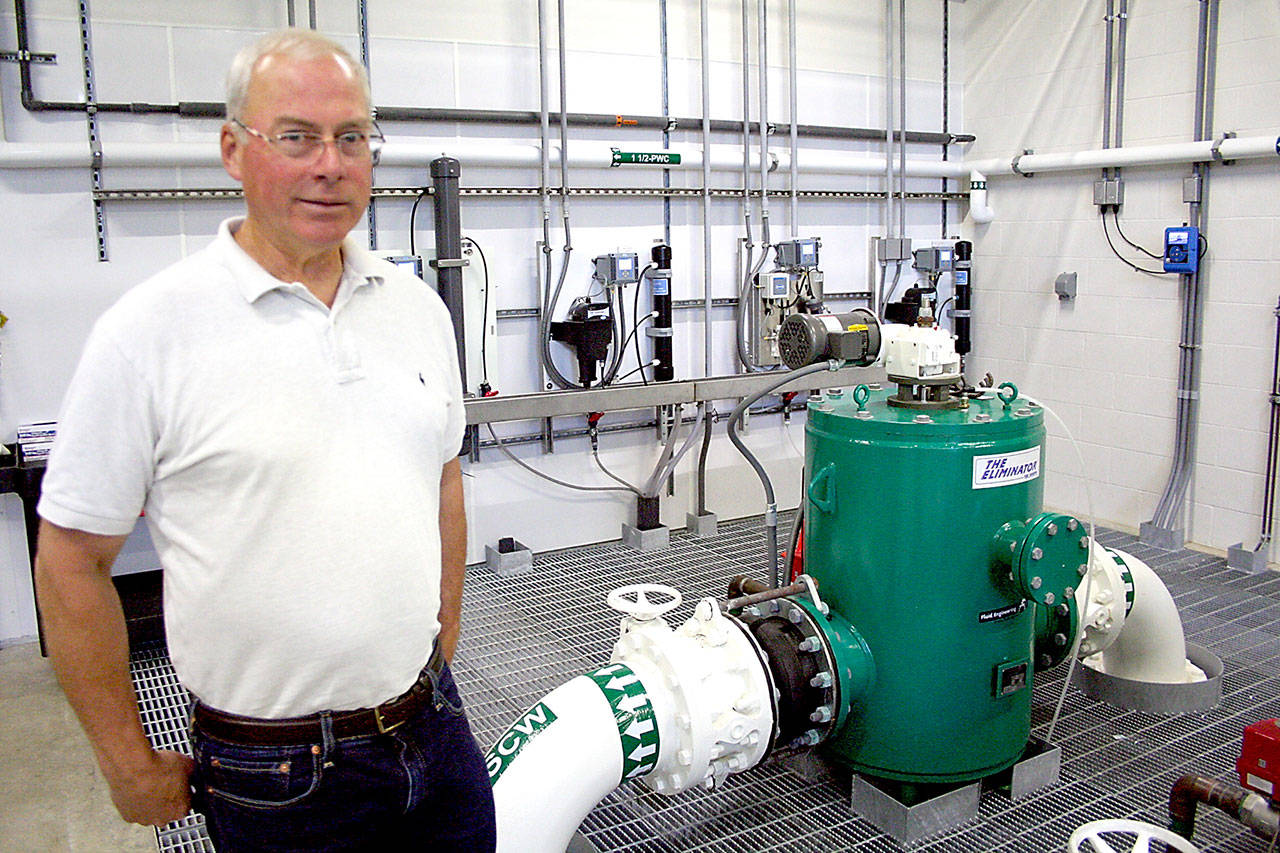PORT TOWNSEND — A sample of the Port Townsend water supply that city officials sent for testing has come back clean of the chemical glyphosate following aerial spraying near City Lake last week.
Greg Lanning, Port Townsend’s public works director, said Thursday the water sample collected Aug. 20, the day after Pope Resources applied the herbicide on its private timberland, did not contain any glyphosate.
The city collected a second sample Monday, and it was sent to Edge Analytical, the same certified water-testing facility in Burlington that tested the original sample.
“It’s always good to have a second [test] verify the first,” Lanning said. “It’s a different time to give anything else in the system a chance to come down.”
Glyphosate is the active ingredient in the weed-killer Roundup, and there is an active debate among agencies on whether or not it causes cancer. The California Office of Environmental Health Hazard Assessment has listed it as a cancer-causing chemical since 2017, although the federal Environmental Protection Agency does not approve those labels.
Pope Resources used the chemical compound legally as approved by the state Department of Agriculture through a permit with the state Department of Natural Resources. Both agencies have previously stated they also secured samples for testing.
Helicopters applied the compound in Jefferson County on Aug. 19-20, drawing protesters from the county environmental coalition on the first day at a site on state Highway 20 just south of Anderson Lake Road.
Coalition members have spoken publicly at City Council meetings as well as the Board of County Commissioners, concerned about many factors, including the drinking water.
Both samples were taken from the Port Townsend water treatment facility after it had passed through the system, city Water Resources Manager Ian Jablonski said.
“Based on where the spraying was occurring and the distance and elevation of our watershed from where they were spraying, it’s a very small likelihood of anything getting into the watershed,” Jablonski said.
He said they followed the EPA protocol for testing and captured 250 milliliters in a bottle.
Lanning said it could take about three days for water in the City Lake reservoir to reach the treatment facility.
“If you’re in the pipe itself, it travels about 7 or 8 feet per second,” he said.
A number of factors may contribute to the time water reaches the drain from inside the lake. That’s why the city waited about a week to take another sample, he said.
“That’s what engineers drool over,” Lanning said. “That’s a test on their professional engineering.”
Lanning previously told the City Council he purchased two jars at $250 each to test specifically for glyphosate.
“It was more due to the customer concerns than regulatory concerns,” Jablonski said.
________
Jefferson County Managing Editor Brian McLean can be reached at 360-385-2335, ext. 6, or at bmclean@peninsuladailynews.com.

